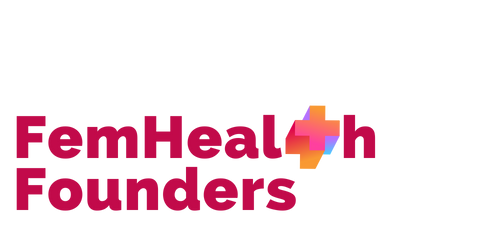
Elevating women-led companies. Solving women’s health issues.
A women-led, women-centric innovation hub.
FemHealth Founders (FHF) empowers female founders to build and lead profitable, women-centric companies that are offering solutions to women’s health-related issues. FHF cultivates innovation, validation, mentorship, and investment in women’s health and wellness solutions (often referred to as femhealth or femtech).
This hub aims to launch 50 women-led femhealth companies in the heartland by 2026.
Join us in creating a symbiotic force for good between female founders, the women they serve, and society at large.
Announcing: the FemHealth Accelerator in the Heartland
We’re honored to partner with StitchCrew out of Oklahoma City to launch the FemHealth Accelerator program for women-led femhealth startups throughout the Heartland. To learn more about the Accelerator and/or apply, click here.
-
Launching a world-class femhealth accelerator for women founders in the heartland, with a goal of 50 women-led femhealth companies in the heartland by 2026.
-
Cultivating a world-class femhealth ecosystem for companies to do business in Northwest Arkansas.
-
Our flourishing entrepreneurial ecosystem paired with a low cost of doing business makes NWA the perfect place to launch and scale the FemHealth Founders initiative. We’re also home to three Fortune 500 companies, an R1 university, and the new Whole Health Institute.
Passionate about women’s health?
Join our roundtables.
-
You have a seat at the table if…
You have an idea or a company in women’s health and wellness
You’re a passionate stakeholder in women’s health
You’re an investor who wants to capitalize on the $75 billion women’s health innovation market
You love learning about and discussing women’s health innovation
You want to see more women founders succeed
-
Join area advocates as we identify:
Femhealth founders and aspiring femhealth founders
Opportunities and challenges in women’s health innovation
The costliest issues in women’s health
Stakeholders committed to solving these issues
Mentors equipped and passionate about supporting female founders
Capital partners with an interest in Femtech investment
-
Focus areas will include but are not limited to female-focused:
Personalized healthcare innovation
Interoperable applications between physician and patient
Real world evidence health data platforms
CPG
Wellness solutions
Mental health solutions, e.g., postpartum depression, menopause
Women face a complex set of barriers to successfully launching and scaling high-impact businesses.
A History of Roadblocks
-
Boosting new technologies and services in women’s health and wellness presents a triple bottom line opportunity. Women direct 83% of all consumption in the United States, in buying power and influence. They also account for 80 percent of consumer purchasing decisions in the healthcare industry. With women being the primary caretakers in families, improved health outcomes for them have a profound impact on everyone, especially children and older people.
-
About 1% of healthcare innovation and research is invested in female-specific conditions (beyond oncology). Entire conditions such as pregnancy and childbirth-related deaths, Endometriosis, and menopause are left out of global health burden databases, despite billions of dollars of associated healthcare costs and economic loss. Beyond reproductive and maternal health, conditions like heart disease and auto-immune disease affect women differently than men, yet these differences are not adequately studied and accounted for in medical settings.
-
Gender bias against women and widespread dismissal of women’s issues in patient care settings is well-documented, as is the historic and persistent exclusion of women in medical research and trials. Less than 2% of female conditions comprise the current healthcare pipeline, yet we know that women’s healthcare is more complex and costlier than men’s.
-
In the U.S., only 25-30% of healthcare executives – and a mere 13% of CEOs – are female, leaving most of the healthcare innovation and decision-making in the hands of men. Zooming out, only 20% of all global startups had a female founder in 2020 and the average size of a VC deal for all-female teams was $6.8 million in 2020, compared to $18.7 million for male teams. In 2021, only 2% of all VC funding went to women across the U.S., and a staggering 0.35% went to Black female founders. In 2020, 0% of VC funding went to women-founded businesses in Arkansas.
Despite these low numbers, women founders deliver more than two times as much per dollar invested in their businesses, hire 2.5 times more women than their male counterparts, and tend to be more socially responsible through their companies in terms of giving, wealth management, employee treatment, and global impact. Yet, the innovation landscape, funding, and support to scale women-founded companies still significantly lags behind men.
-
From limited access to affordable childcare, a higher burden to manage familial responsibilities, to societal bias against women in leadership roles, women undoubtedly face a tougher road to business success. 48% of women say they lack competent advisors for their businesses, yet women-led companies that garner funding have been shown to be more successful than their male counterparts.
-
Women’s health and wellness companies remain a largely untapped and undervalued market with high potential for societal and economic transformation. We aim to address the root issues that prevent female founders from success while encouraging female founders to create solutions to core issues that primarily affect women. Supporting women founders who are solving women’s pain points at scale unlocks a profound economic advantage for women business owners, all women, and the whole of society.
